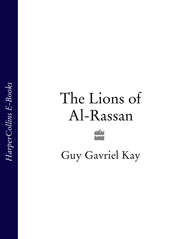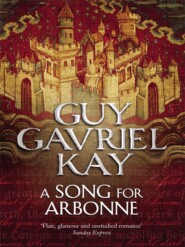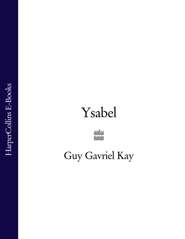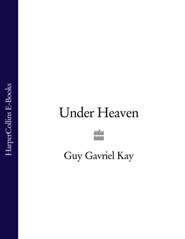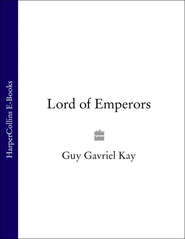По всем вопросам обращайтесь на: info@litportal.ru
(©) 2003-2025.
✖
River of Stars
Настройки чтения
Размер шрифта
Высота строк
Поля
He didn’t want his own men killing him, and he really wanted a scoop or two of wine. He added, “And tomorrow you can carry two buckets to the silk farm and offer them for nothing instead of ten cash. They’ll forgive you, and you know it. And you get to turn back right now and go home.”
The boy stared at him. Then he nodded. “All right. For twenty-five. Cash first.”
Ziji’s men let out a cheer. First happy sound all day, he thought. The magistrate hastily reached inside his robe and counted out coins (showing too heavy a purse in the process). The others all stood up and were watching as he dropped the money into the wine seller’s palm.
“Bucket’s yours,” the boy said. “Well, the wine is. I need the bucket.”
One of Ziji’s soldiers picked it up and, showing more good sense than the other merchants had, carried it to their shade. Another rushed for two ladles from the gear on one of the donkeys. They crowded around the bucket.
With a leader’s almost inhuman restraint, Ziji stayed where he was. “Save me two scoops at the end,” he called. He wondered if that would earn him any goodwill.
He wondered if they’d save him the two scoops.
The other party retreated across the roadway, chattering loudly and laughing—there had been an adventure here, and they’d drunk wine very fast. They would probably sleep now, Ziji thought.
The wine seller moved away from both groups and found some shade, waiting for his bucket. His day had just been made easy. He could turn around and go home.
Ziji watched his men around the wine, drinking too quickly. The magistrate, predictably, had just taken a third scoop. No one was going to gainsay him. Except Ziji, perhaps. Reluctantly, he stood up. He’d have been happier if they’d done it properly and carried the bucket over to their leader with the two last scoops.
He sighed. Things were seldom done properly these days. It was a sad world in which they lived. He glanced across the road to the woods on the other side.
All six merchants were walking into the roadway. Three carried swords. Two held their walking staffs as weapons now. The wine seller rose to his feet. He crossed towards the other merchants, not hurrying. One of them handed him a short bow and a quiver of arrows. The man was smiling.
Ziji opened his mouth and shouted a warning.
In that same moment the magistrate toppled heavily into the grass. An instant later another of Ziji’s men did the same. Then a third.
In an alarmingly short interval they were all sprawled on the ground, as if drugged. Of course drugged, Zhao Ziji thought. He was facing seven men alone.
“This isn’t worth dying for,” said the young wine seller gently.
He seemed to have taken the lead here, improbably. His bow was trained on Ziji. He added, “Although, if you insist, or feel there is no reason to go on living, I will kill you.”
“How …?” Ziji stammered.
“With an arrow!” The clean-shaven man who had appeared to lead the merchants laughed.
“No, Fang. He means how was it done. He is a thinking soldier. Some of them are.” The shirtless wine seller’s manner had changed. He didn’t seem so young any more.
Ziji looked at them. He’d had none of the wine but felt lightheaded, dizzy with fear and dismay.
The young one said, “Two ladles. Shanbao powder in the second one when Lao brought the bucket back and dipped it but I didn’t let him drink. Remember?”
Ziji remembered.
He said, “How … how did you know?”
The wine seller—who wasn’t really a wine seller—shook his head impatiently.
“Really? There’s a party from Hsiang on this road every summer, heading for the capital. Kai Zhen’s gifts. You don’t think country people are smart enough to realize that? That they might let us know when you set out, how many, how you are dressed? For a small share of what we take? And to get at the minister who created the Flowers and Rocks program that is killing people and destroying the countryside to build a garden in Hanjin?”
So much for disguises, Ziji thought. He tried to think of a threat that would mean anything to these men. He took a moment, but nothing came to him.
“You might as well kill me,” he said.
The men in the road grew quiet. They hadn’t expected that. “Truly?” said the wine seller.
Ziji nodded towards the magistrate. “I assume they are drugged, not dying? That one will blame me when he wakes up. The prefect will believe him. He’s a ranking civil servant. I’m just—”
“A soldier,” said the young man. He looked thoughtful now. “He doesn’t have to wake up.”
He swung his bow over and trained an arrow on the magistrate in the grass.
Ziji shook his head. “Don’t. He did nothing wrong. This was my error. We don’t drink that wine, you wouldn’t have attacked twelve with seven.”
“Yes, we would,” the man with the bow said. “Half of you dead with arrows before we’d fight, and that half would all be soldiers. The others are useless and you know it. Tell me, do you want him dead?”
Ziji shook his head. “It does nothing for me, and he’s only greedy, not evil.”
“They’re all evil,” said one of the outlaws. He spat. The wine seller said nothing.
“Besides,” Ziji added, “any of them will tell the same story, and it was my job to stop them from drinking that wine.”
“We can kill them all.” Not the wine seller, one of the others.
“No,” said Ziji. “Just me. My price to pay. I might be executed if I go back, anyhow. May I have a moment to pray?”
The wine seller had an odd expression on his face. He looked young again. He was young. “We don’t need to kill you,” he said. “Join us.”
Ziji stared.
“Think about it,” the young one went on. “If you are right, you have no future in that prefecture, or in the army, and you may be executed. There’s at least a life with us.”
“I don’t like it,” said one of the others.
“Why?” said the young one, his eyes still on Ziji. “This is how I joined you, back when. And how did you come to be one of the Marsh Outlaws, Kui? Wandering through villages asking for honest work?”
There was laughter.
At least he knew who these were now, Ziji thought. The Outlaws of the Marsh were the largest bandit group in Kitai south of the Great River. Every year there were urgent requests to Hanjin to send an army to deal with them. Every year these were ignored. There was a war being fought: the southern prefectures were expected to deal with local bandits themselves.
It was all true, Ziji thought: he had no life left at the barracks. Either because he’d be executed, or beaten and jailed by an enraged prefect, or simply because he’d never be promoted now. He’d probably be sent to the war.
He said that. “I could go fight the Kislik.”
The other man nodded. “They’ll likely send you there. They need soldiers. You did hear about the disaster?”
Everyone had heard. It wasn’t a new story. A deep thrust ordered north through the desert, aimed at Erighaya, horses and foot soldiers, far into enemy lands, then halted outside the walled Kislik city because—amazingly—they hadn’t brought siege engines. They’d forgotten them. No one had checked. It was madness, an utterly improbable tale, and it was true.






